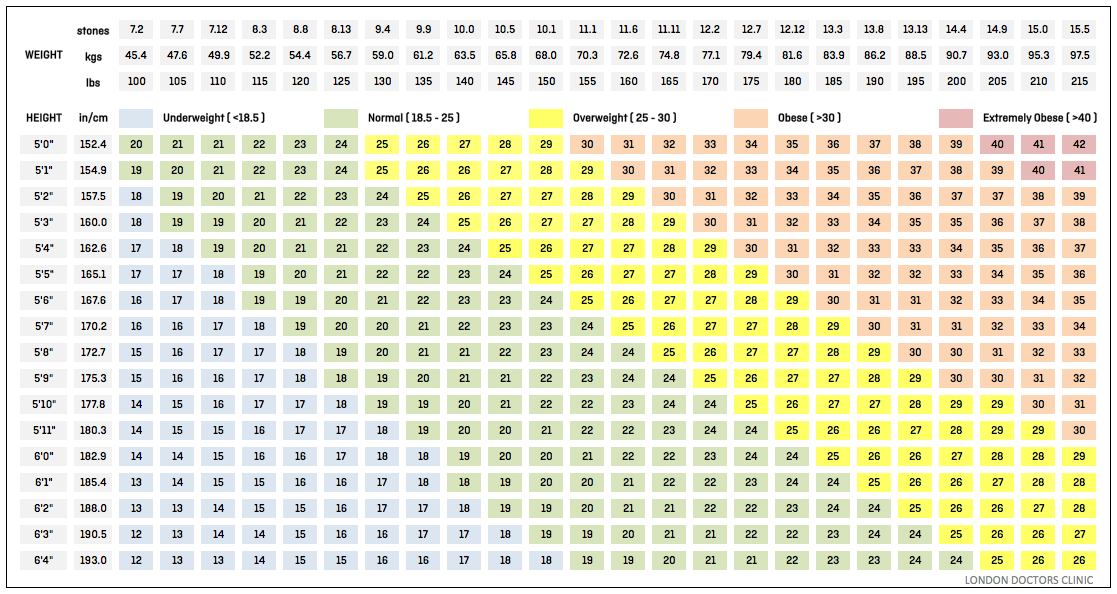
However, BMI is not intended as a definitive diagnostic tool. If you are overweight or obese, losing even a little weight can help reduce your risk. It is especially important if you are at high risk for developing chronic diseases like heart disease, diabetes, and some cancers. This happens when it is not able to receive enough oxygen due to low blood pressure caused by malnutrition.īMI is a convenient way to tell if you are at a healthy weight. Meanwhile, mental slowness is another common symptom that can occur when the brain gets too little nutrition. If you are underweight, you may find that you get sick more often and it takes you longer to recover from illnesses and infections. It can lower your resistance to illness because your immune system needs energy from food to function. On the other hand, being underweight may mean you are not getting enough nutrients. Metabolic syndrome – increased blood pressure (hypertension) high levels of insulin or glucose in the blood excess body fat around your waistline.Certain types of cancer – endometrial cancer (cancer of the lining of the uterus) and breast cancer in women colon cancer and rectal cancer in men and women prostate cancer in men liver cancer gallbladder disease kidney cancer.Type 2 Diabetes – high levels of sugar in the blood.Heart disease and stroke – high blood pressure, heart attack, congestive heart failure, abnormal heart rhythms (arrhythmias), heart valve disease (endocardiosis), coronary artery disease, atherosclerosis (hardening of the arteries), and thrombosis (blood clots).In general, the higher a person’s BMI, the greater their risk of losing years of healthy life and developing health problems 1 such as

You can also use it to check whether your weight is healthy in relation to your height. By knowing your BMI, you can assess your status in terms of being underweight, normal weight, overweight, or obese. A BMI measurement can estimate a person’s risk of developing certain health conditions, such as heart disease.


 0 kommentar(er)
0 kommentar(er)
